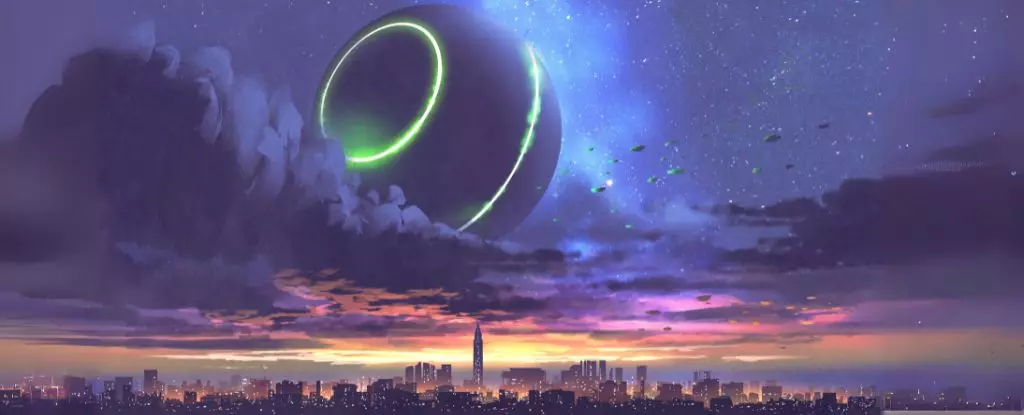Earth is not only facing myriad problems that stem from human activities, but it also grapples with the haunting prospect of what may come from the cosmos. The recent discovery of asteroid 2024 YR4 has reignited public fascination and anxiety, as its trajectory could spell disaster for urban centers on our planet, akin to a “city killer” scenario. While the probability of such an event is currently pegged at a seemingly comforting 0.001 percent, this statistic does little to quell our existential fears. There was a spine-chilling moment shortly after its discovery when the risk of a hit briefly surpassed the 1 percent threshold, a provocative statistic that echoes our deepest fears about planetary annihilation.
The question arises: why does the cold expanse of space captivate us so? Why are we preoccupied with potential threats from above when Earth is riddled with climate crises, war, and societal upheaval? The answer might be found in our ancestral instincts, affirming that while we struggle with the challenges of our time, the fear of the unknown—a force much mightier than ourselves—can be intoxicating.
The Fragility of Existence
Professor Daniel Deudney from Johns Hopkins University argues for a more cautious approach to our exploration and exploitation of space. In his work, *Dark Skies*, he suggests that while planetary defense technologies could protect us, they also bear the potential to be commandeered for military purposes, weaponizing an already fraught cosmic landscape. This draws a stark line between the necessity of preparedness and the unintentional consequences of human ambition. Deudney’s stance advocates for a moratorium on aggressive space activities, emphasizing that humanity’s progress into the universe may be premature and dangerous.
However, the practicalities of delaying such pursuits are unrealistic; the specter of an asteroid impact looms larger than fears of advancing military technology in space. In the face of increasing political intrigue around space exploration—driven by governments and the burgeoning space tourism industry—it seems we are on a trajectory that cannot be easily altered. Ironically, the very instruments we create for protection may serve as our downfall.
Myths, Anxieties, and Human Behavior
The fusion of fear and the cosmos is not a novel concept; it finds roots in ancient mythology. Take, for example, the indigenous Sami narrative of the Cosmic Hunt, which serves as a cautionary tale illustrating misguided actions leading to catastrophic results. This archetype encapsulates humanity’s long-standing trepidation about the heavens, marrying the primal fear of the unknown with our inclination towards destruction.
Such anxieties manifest in modern phenomena like UFOlogy, where believers express concerns regarding not only extraterrestrial threats but also potential cover-ups by scientists and governments. This inherent distrust fuels both fascination and paranoia, forming a symbiotic relationship with our fears of cosmic entities. The need to decode the heavens often spirals into conspiratorial narratives that simultaneously elevate space to an omnipotent force while diminishing our agency over terrestrial priorities.
The Space Virus Theory
One alarming aspect of cosmic fears connects the idea of life beyond Earth with global issues, such as pandemics. The theory proposed by astrophysicists Fred Hoyle and Chandra Wickramsinghe in the 1970s—that life’s building blocks may hail from space—has resurfaced, particularly during the COVID-19 pandemic. This unfounded theory entwined with a belief that viruses could be extraterrestrial in origin compels the public to grasp for scapegoats rather than confronting human behavior that contributed to the spread of disease.
The absurdity of asserting that viruses are delivered by meteor showers mirrors the emotional landscape of current anxieties, illustrating how fears of space can morph into detached narratives about human failings. By shifting blame onto cosmic forces, we evade accountability, a tendency all too common in times of crisis.
Power, Conspiracy, and the Human Condition
Today, fears about space often intertwine with socio-political critiques. The narratives surrounding billionaires racing to conquer the cosmos fuel dissent, questioning who gets to decide the fate of humanity’s future in space. The emphasis on wealth and access underscores a larger existential dread about elitism and power structures. Yet, while these concerns are valid, they risk framing our relationship with space as an adversarial one, perpetuating the notion of a hostile expanse rather than a continuation of life.
The bifurcation between Earth and the cosmos leads to an exaggerated sense of divide, fostering a “bunker mentality” where we perceive ourselves as separate from the universe rather than intrinsic parts of it. While it is natural to harbor fears of what lies in the sky above, it is crucial for society to confront these anxieties and recognize that our issues here on Earth often mirror our fears of the unknown. By embracing a holistic perspective that integrates our celestial curiosities with terrestrial realities, we can transcend the confines of fear and more effectively address our collective challenges.

